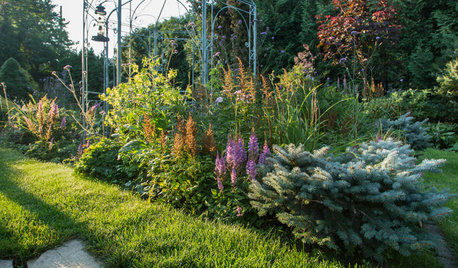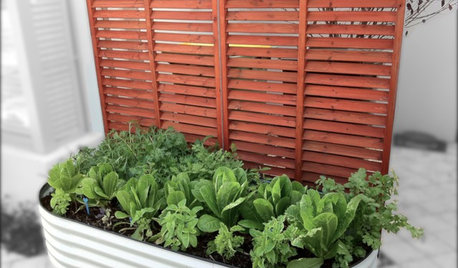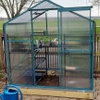Best way to organically prepare soil for tomatoes
gardengal19
12 years ago
Related Stories

GARDENING GUIDESGardening Solutions for Heavy Clay Soils
What’s a gardener to do with soil that’s easily compacted and has poor drainage? Find out here
Full Story
GARDENING GUIDESHow to Stop Worrying and Start Loving Clay Soil
Clay has many more benefits than you might imagine
Full Story
GARDENING GUIDESHouzz TV: Make a Worm Bin for Rich Soil and Happy Plants
A worm-powered compost bin that can fit under a sink turns food scraps into a powerful amendment for your garden. Here’s how to make one
Full Story
EDIBLE GARDENSSummer Crops: How to Grow Tomatoes
Plant tomato seedlings in spring for one of the best tastes of summer, fresh from your backyard
Full Story
INSPIRING GARDENSMy Houzz: A Canadian Garden Is Well-Prepared for the Cold Weather Ahead
Through trial and error over 3 decades, a retired schoolteacher-turned-hobby gardener creates an idyllic garden retreat
Full Story
FALL GARDENING5 Ways to Put Fall Leaves to Work in Your Garden
Improve your soil and yard the organic way with a valuable garden booster that grows on trees
Full Story
GARDENING GUIDESNew Ways to Think About All That Mulch in the Garden
Before you go making a mountain out of a mulch hill, learn the facts about what your plants and soil really want
Full Story
EDIBLE GARDENSNatural Ways to Get Rid of Weeds in Your Garden
Use these techniques to help prevent the spread of weeds and to learn about your soil
Full Story
MOST POPULAREasy Green: 23 Ways to Reduce Waste at Home
Pick from this plethora of earth-friendly ideas to send less to the landfill and keep more money in your pocket
Full Story
FEEL-GOOD HOME21 Ways to Waste Less at Home
Whether it's herbs rotting in the fridge or clothes that never get worn, most of us waste too much. Here are ways to make a change
Full Story






mulio
plantslayer
Related Professionals
Lakeville Landscape Contractors · Northport Landscape Contractors · Painesville Landscape Contractors · Thonotosassa Landscape Contractors · West Palm Beach Landscape Contractors · York Landscape Contractors · Baileys Crossroads Landscape Contractors · Jackson General Contractors · Redan General Contractors · Rossmoor General Contractors · West Whittier-Los Nietos General Contractors · Grand Rapids Decks, Patios & Outdoor Enclosures · Meridian Decks, Patios & Outdoor Enclosures · Reading Decks, Patios & Outdoor Enclosures · Richmond Decks, Patios & Outdoor Enclosuresdigdirt2
ikea_gw
homegardenpa
fortyonenorth